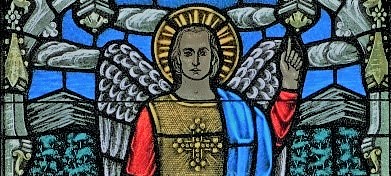The Man Who Would Be King
Palm Sunday, also known as the “Sunday of Passion”, in reference to the reading of the Passion that day, is an uneasy union of names. Is it the day of Jesus’ victorious procession into Jerusalem, recalled by our parades of palm leaves? Or is it the day of his disastrous downfall? It is both. For the great triumphant procession of palms as well as the betrayed allegiances of the human heart are both woven into the Passion and death of Jesus; the liturgy of Palm Sunday is a collision of themes: glorious hosannas and somber omens.
It goes unnoticed, for the most part, that the inescapable context of the Passion is a national, tribal, and political struggle. The crisis of Palm Sunday is the crisis of every epoch and culture. We are torn between Christ and tribe, between casting our allegiance with him or with the nation, between the king’s call and safety’s comfort.
“Are you the king of the Jews?” Are you the king of Christians? Are you the king of Catholics? These are questions that history poses not only to Christ, but to all who follow him. What would be our answer? Who or what is the real object of our allegiance?


